YOU SHOULD HAVE LEFT (2020)
A former banker, his actress wife, and their spirited daughter book a vacation at an isolated modern home in the Welsh countryside where nothing is quite as it seems.
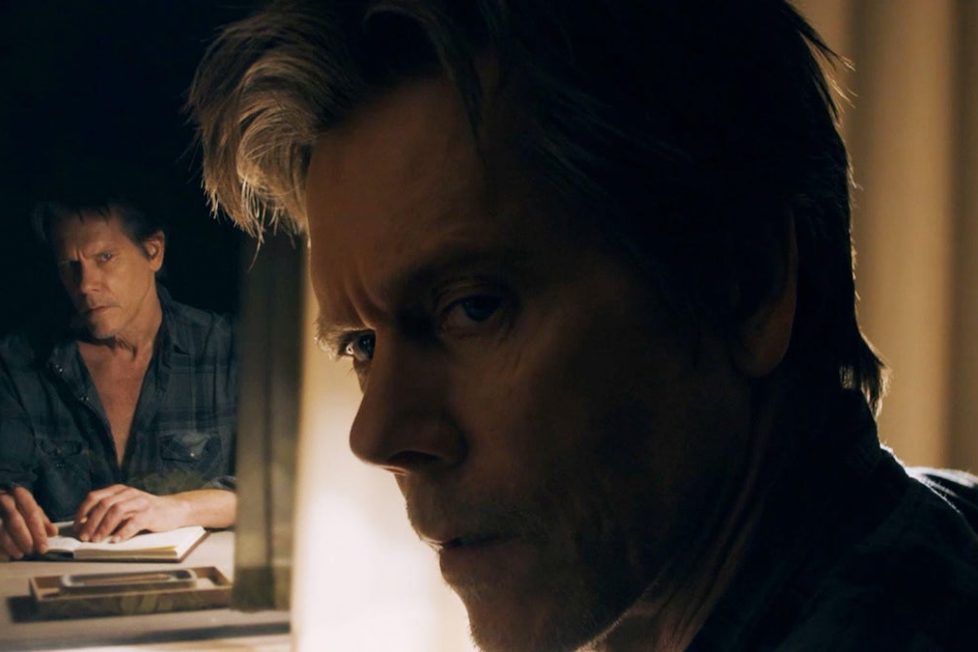
A former banker, his actress wife, and their spirited daughter book a vacation at an isolated modern home in the Welsh countryside where nothing is quite as it seems.


Over the past decade, Blumhouse Productions have become synonymous with horror. Debuting with Paranormal Activity (2007), their low-budget model has seen them producing some of the most successful modern horror films (Get Out, Split, Halloween). Beginning the year with Leigh Whannell’s modern twist on H.G Wells’ The Invisible Man (2020) and Craig Zobel’s The Hunt (2020), founder Jason Blum now teams up with writer-director David Koepp for the psychological horror You Should Have Left.
As a screenwriter, Koepp is responsible for some of the world’s most popular blockbusters, ranging from Jurassic Park (1993) to Mission: Impossible (1996) and Spider-Man (2002). Alongside his writing, he’s also directed a series of thrillers and horrors, making his debut with The Trigger Effect (1996) ahead of Stir of Echoes (1999)—a supernatural ghost story that had the misfortune of being released alongside M. Night Shyamalan’s The Sixth Sense (1999). Following his work writing the ill-fated remake of The Mummy (2017), Koepp returns with an adaptation of Daniel Khelmann’s German novella You Should Have Left. In the same vein as his earlier works, it’s a psychological horror combining a traditional haunted house setting with a probe into male anxiety.
Theo Conroy (Kevin Bacon) is a wealthy middle-aged banker enjoying the high-life with his younger actress wife Susanna (Amanda Seyfried). However, his traumatic past is causing domestic unrest and chaos in his home life. In an effort to repair their relationship, Theo and Susanna book a holiday at a stunning remote modern home in the Welsh countryside for themselves and their six-year-old daughter Ella (Avery Essex). But what begins as a perfect retreat to enjoy each other’s company, soon turns in to a series of strange events that lead to arguments, fears, and anxiety that slowly unravels Theo’s mind. As truths start pouring out, there may be something far more sinister in the house as time and space don’t play by normal rules.

As one of Bacon’s first roles was in Friday The 13th (1980), it’s refreshing to see the actor return to the genre that kickstarted his career. It’s a genre he enjoys, having starred in spooky thrillers such as Flatliners (1990), Hollow Man (2000), and Koepp’s aforementioned Stir of Echoes (1999).
Here, Bacon plays a wealthy investment banker who was on trial for the death of his wife. Acquitted and remarried, he dotes on their six-year-old daughter while pretending people’s whispers behind his back doesn’t bother him. Bacon finds multiple layers to Theo and is genuinely believable as a shady man losing his grip on reality. Despite the wealth and his attractive wife, underneath he’s struggling with insecurity and jealously. His meditation playlists and therapeutic journal no longer provide the calming effect they’re supposed to. Similar to Jack Nicholson in The Shining (1980) or John Cusack in 1408 (2007), there’s a constant tension within his character. When his daughter rhetorically asks if her father is going to die before her mother, ominously look he mutters “not if I can help it.”
Similarly, Amanda Seyfried (Mamma Mia) has a believably conflicted chemistry with her on-screen husband. As Susanna, she’s a sought-after actress who’s feeling a little neglected by her spouse’s paranoia. Whether making jokes about Theo’s age or seducing him with her beauty, Seyfried brings a sense of believability to their fractured relationship. Despite getting little to do, the actress carries the screen each time she appears. The only problem is that Susanna vanishes from pivotal moments. Seyfried is an amazing actress and proved in Jennifer’s Body (2009) that she has the ability to shine in horror, yet her underused character and absence from the climactic final act is frustrating.
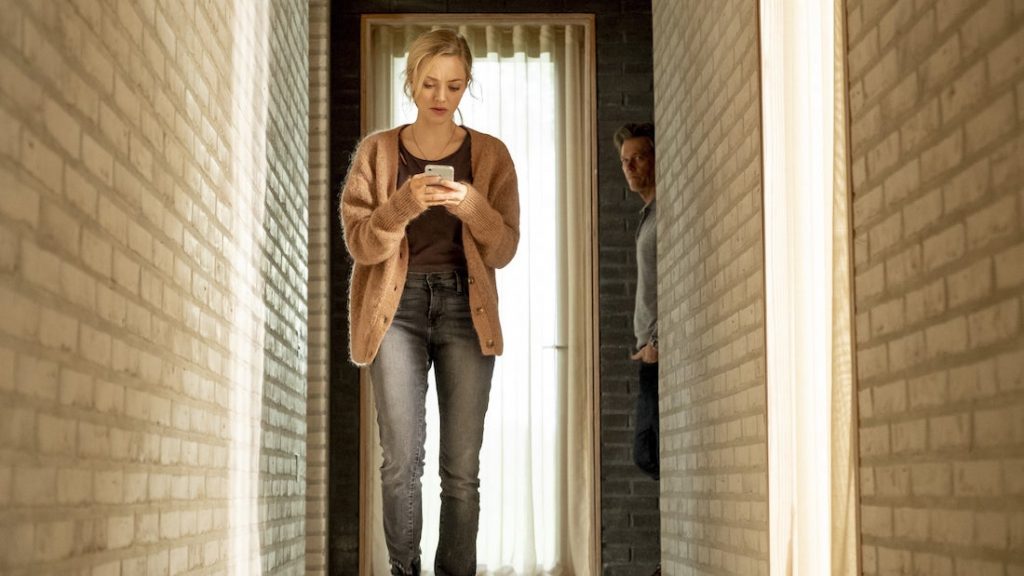
The real standout has to be the young Avery Essex as Ella. In her feature debut, she imbues the couple’s daughter with a precociousness that feels authentic. She gives an utterly charming performance that recalls a young Drew Barrymore in E.T: The Extra-Terrestrial (1982). As a family unit, the group meshed together well and a special mention has to go to the compelling father-daughter bond between Theo and Ella.
Amongst proving he’s a gifted screenwriter, David Koepp has also proven he’s perfectly serviceable behind the camera with previous genre movies. His choice of cinematography, editing, and lighting feed into an increasingly eerie and chilling atmosphere inside the strange house. He drops hints early while keeping audiences guessing the exact nature of the threat. A quietly effective moment occurs when Theo moves away from a mirror without noticing his reflection has unchanged. The director is able to produce more than enough scares by leaning into the elements that were on display in What Lies Beneath (2000) and The Others (2001).
Meanwhile, there are more than a handful of moments that are cleverly constructed. A sequence showing Theo taking a brief foray into a local Welsh village provides an almost Twin Peaks (1990-2017) surreal experience. Whilst in a local store, a shopkeeper (Colin Blumenau) eyes Theo suspiciously and asks “you staying up that hill? Anything happened yet? You met Stelter yet?” After leaving, a local woman (Lowri Ann Richards) is standing by the family rental car, without introducing herself, she asks if Theo saw Stelter yet. When he says no, she responds “well, he sees you” before walking away.
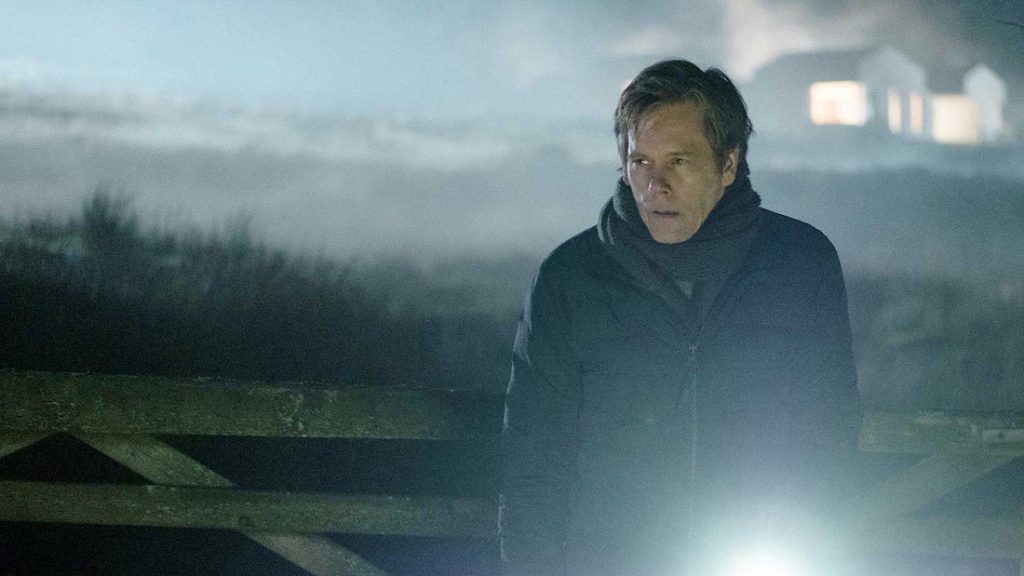
Produced on a low budget of $4M, You Should Have Left adheres to something of a Blumhouse horror algorithm: darkened hallways, flickering lights, and ghostly figures entering one’s peripheral vision. Arguably, many viewers may roll their eyes at such standard fare that’s expected from Jason Blum’s factory. However, Koepp makes up for it with an abundance of horror scenes directed with sheer momentum and skill. As it transitions to a hallucinogenic third act that pits the house against Theo, You Should Have Left is at its strongest. It’s a world of decay and concrete that would fit comfortably in the world of Silent Hill (2006). Similar to Poltergeist (1982) or The Twilight Zone episode “Little Lost Girl”, one particular sequence sees Ella disappear somewhere inside the house. Increasingly desperate and panicked, Theo searches for her as she calls out for her father in terror. Doors randomly appear to cart people off to other places, while scattered Polaroids seemingly tell the future and the past. Koepp’s creativity manages to produce several suspenseful moments.
Simultaneously possessing the pleasure of being psychological horror, You Should Have Left serves as a commentary on relationship dynamics and toxic masculinity. Something also prevalent in Blumhouse’s remake of The Invisible Man. When Bacon and Seyfried’s names were attached to the project, several critics rolled their eyes at what appeared to be another heedless pairing a Hollywood veteran with a partner young enough to be his daughter. However, Bacon and Seyfried’s age disparity is cleverly built into the plot as the most obvious manifestation of Theo’s midlife crisis.
An early sequence shows Theo visit Susanna on the set of a movie where she’s working, to be stopped by a production assistant (Joshua C. Jackson). After mistaking her husband for her father, the assistant refuses Theo onto the set. It becomes clear why the set is closed as the sounds of a sex scene can be loudly heard. Emasculated and paranoid, a later scene shows Theo searching his wife’s phone for signs of infidelity whilst she bathes in the next room. Using the essence of Rosemary’s Baby (1968), the narrative contextualises how insidious relationship elements such as deceit and infidelities can manifest if not confronted.
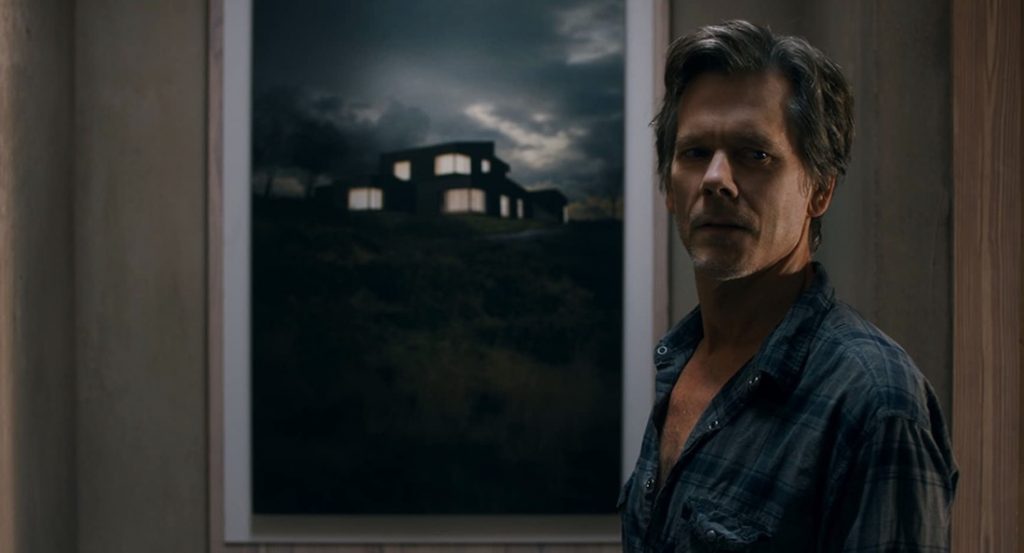
From a production standpoint, Your Should Have Left is stunning. The house that the Conroy family resides in is breathtaking and brilliantly represents Theo’s tortured psyche. Production designers Sophie Becher and Megan Elizabeth Bell’s makes the location a character itself with its geometric furniture, unsettling light fixtures, and long concrete hallways evoking Stephen King’s Overlook Hotel.
In one scene, Theo compares measurements of the living room from the interior and exterior. Discovering an inexplicable 5′ difference, along with the dimensions not aligning in a way that’s physically possible. While adding and unsettling nature of the setting, it brings to mind Robert Wise’s The Haunting (1963). Visually, cinematographer Angus Hudson (Cashback) captures each shot beautifully. Although the prominent use of daylight and polished production design occasionally dampens the menacing tones, several sequences are expertly crafted. Hudson’s use of space and lighting techniques keep each shot visually interesting with sinister shadows. Such as a Hitchcock-inspired spiral staircase illuminated by a single lightbulb, swaying back and forth casting disoriented shadows against the wall, creating an unnerving ambience.
You Should Have Left is a stylish picture that feels richer and more substantial than a typical horror flick. However, that doesn’t save it from heading down familiar paths. Where it falters is mainly within the screenplay, which reportedly differs from the original source material. One particular departure from Kelhmann’s novella is that Theo is a wealthy finance professional, rather than a screenwriter. Koepp explains “I just didn’t want to write about a screenwriter. I think a writer in a remote location possibly losing his grip on reality is a story we’ve seen numerous times before”. As a consequence, the tone comes off too similar to the material the director covered in his previous projects. Theo’s journey throughout is almost identical to Mort Rainey’s in the director’s Stephen King adaptation Secret Window (2004). Granted, it produces some thought-provoking plot threads, particularly one about the demise of Theo’s first wife. However, as a result, there’s a certain degree of predictability that leaves the climax less thought-provoking than intended.
There’s a fascinating character study hiding somewhere within the shadows of You Should Have Left coinciding with an interesting story involving a particularly haunted house. Unfortunately, it feels like a retread of Koepp’s more interesting previous films. Admirably, the director goes against genre cliches by working suspenseful moments during the daytime instead of exclusively at night. Whereas the clever use of cinematography creates some great atmospheric moments, ticking most of the boxes that make the Blumhouse model reliable. However, there are only so many smoke and mirror tricks that can distract one from a predictable ending.
USA • UK | 2020 | 93 MINUTES | 1.85:1 | COLOUR | ENGLISH

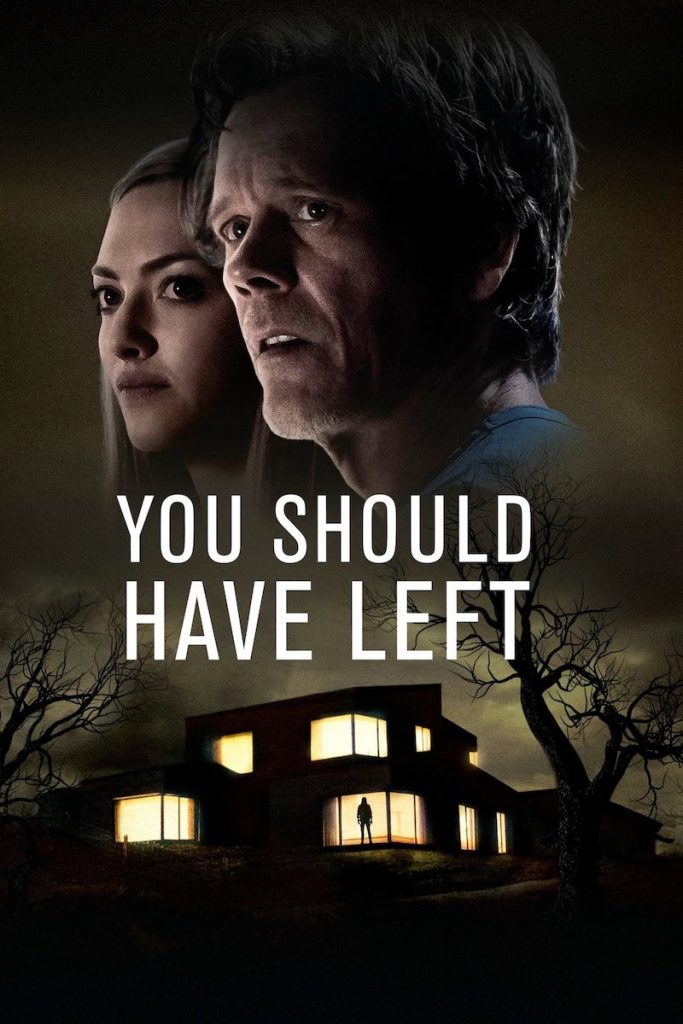
director: David Koepp.
writer: David Koepp (based on the novel by Daniel Kehlmann).
starring: Kevin Bacon, Amanda Seyfried, Avery Essex, Geoff Bell & Lowri-Ann Richards.
